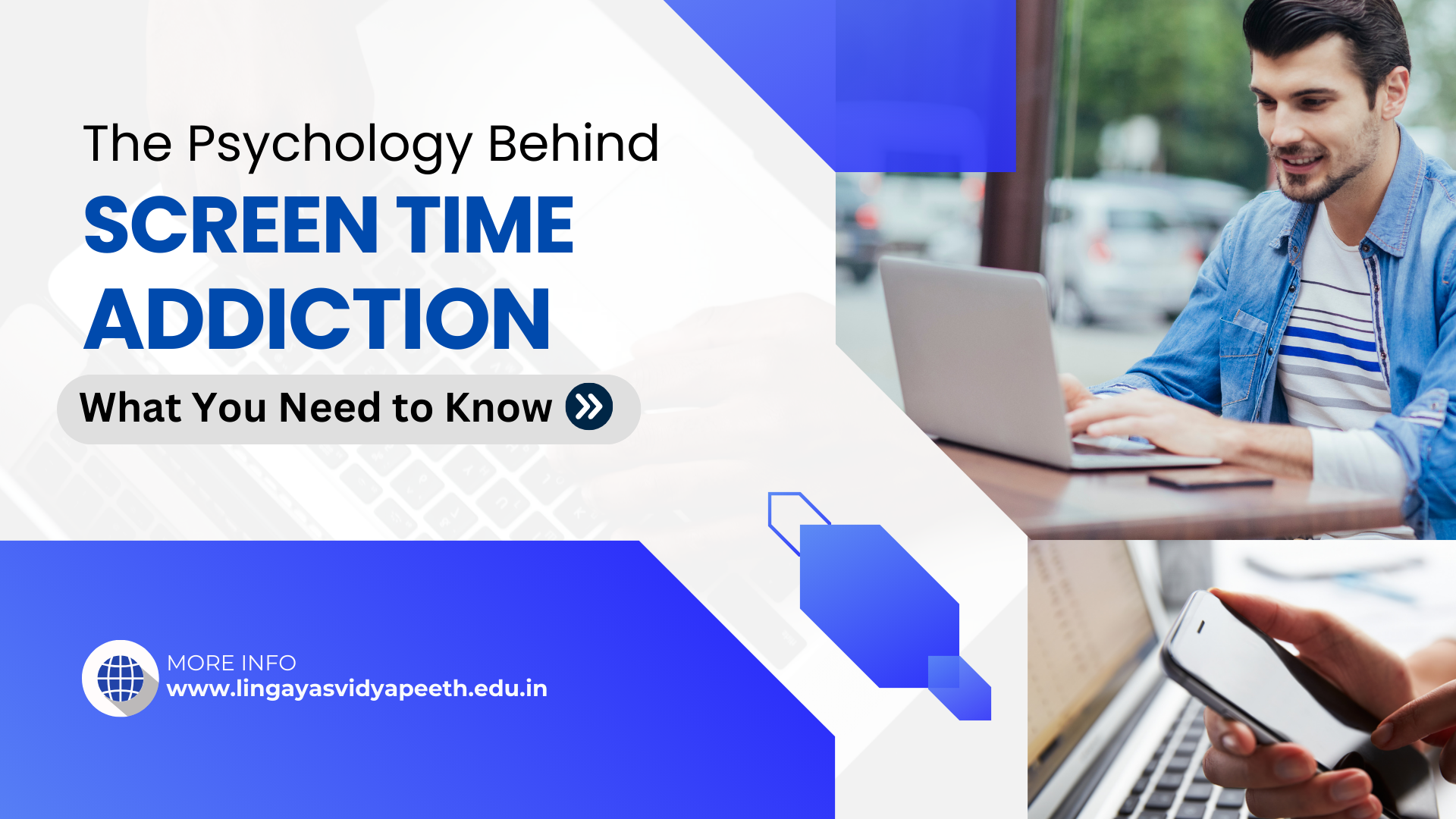
Home » Screen Time Addiction: A Psychological Perspective

The constant presence of screens in our lives has changed how we connect, communicate, and consume information. While technology provides countless benefits, excessive screen time has become an increasing worry. This blog explores the psychological elements of screen time addiction, including its causes, effects, and potential remedies.
At its core, screen addiction is a behavioral addiction characterized by compulsive engagement with digital devices. The psychological mechanisms underlying this addiction are complex but involve several key factors:
The Lifechanging Power of Exercise: Forget Depression and Anxiety
Excessive screen time has been linked to a range of mental health issues, including:
Tips For a Healthy State of Mind
Overcoming screen addiction requires a multi-faceted approach that addresses both psychological and behavioral factors. Here are some strategies:
Conclusion:
It’s important to remember that moderation is key. While technology offers many benefits, it’s essential to maintain a healthy balance between online and offline activities. By understanding the psychological underpinnings of screen addiction and implementing effective strategies, individuals can regain control over their digital lives and improve their overall well-being.
Choose Lingaya’s Vidyapeeth for pursuing an BA Psychology! It is the best university in Delhi NCR with a focus on practical application, and holistic development, expert faculty, modern facilities, and industry collaborations, Lingaya’s provides an ideal environment for students to dive deep into the fascinating world of psychology, preparing them for successful careers in diverse fields.
From
Harshita Goyal
Associate Professor, HOD
School of Humanities & Social Sciences
Lingaya’s Vidyapeeth
Best College in Faridabad for BA Psychology
RECENT POSTS
CATEGORIES
TAGS
Agriculture Agriculture future AI Architecture artificial intelligence Bachelor of Commerce BA English BA Psychology BTech AIML BTech CSE BTech cybersecurity BTech Engineering Business management career Career-Specific Education career guide career option career scope Civil engineering commerce and management Computer Science Computer science engineering Data science degree education Engineering Engineering students English Literature english program Fashion Design Fashion design course Higher Education Journalism journalism and mass communication law Law career Machine Learning mathematics MBA MBA specialization Mechanical Engineering Pharmacy Psychology Research and Development students
University Address: Nachauli, Jasana Road, Faridabad, Haryana
For Admissions :
Toll Free: 1800-120-4613
Mobile : 8447744303 | 8447744304 | 8447744306 | 8447744309
8700003974 | 8700003411 | 8700003749
Address: C-72, Second Floor, Shivalik, Near Malviya Nagar,
Above HDFC Bank, New Delhi 110017
Landline No. - 011-46570515 / 45138169 / 41755703
Mobile No. - +91-7303152412 / +91-7303152420 / +91-9311321952
Jagmani Kutir, Ground Floor, Road No-1, Rajeev Nagar,
Near Darbar Marriage Hall, Patna-800024, Bihar
Contact No: 9818352069/ 8130120095
Mail: kanhaiya@lingayasvidyapeeth.edu.in
Copyrights © 1998 - 2025 Lingaya's Vidyapeeth (Deemed To Be University). All rights reserved.
It is important to note that the following email IDs and domains are fraudulent and do not belong to our university.
LV only conducts physical/online verification of any document related to examination on the following email id: